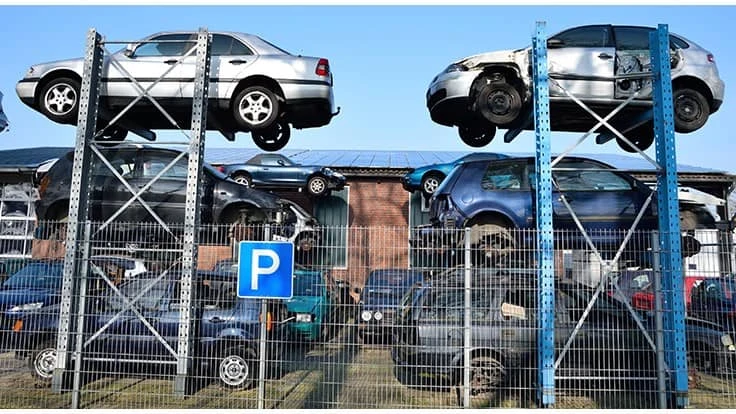
Photo provided by Dreamstime.
A study commissioned by the German Federal Environment Agency has shown that from 3.4 million to 4.7 million end-of-life vehicles (ELVs) are illegally exported from the European Union each year, according to an Austria-based recycling firm recommending policy changes to address the issue.
The vehicles are “illegally disposed of” and shipped to “unknown” destinations, potentially causing “tremendous environmental damage due to improper disposal,” according to a press release issued jointly by Austria-based Scholz Rohstoffhandel and Dr. Beate Kummer of Bonn, Germany-based Kummer:Umweltkommunikation GmbH.
Kummer and Manfred Födinger, managing director of Scholz Rohstoffhandel, say financial incentives are needed to ensure that EU-approved take-back and recycling standards are met.
“Current statistics from Eurostat confirm what also applies to the Austrian market,” says Födinger. “The unknown whereabouts of ELVs have been at a high level for decades [and] politics and authorities are still inactive.”
The duo say the German Federal Environment Agency study has “suggested some helpful approaches to solving the problem.” In the meantime, says Födinger, “We must assume that more than 4 million metric tons of valuable raw materials are lost to European industry. [Recycling] plant capacities in the EU are definitely not being fully utilized, and we urgently need political support.”
Among measures “fully supported by the Austrian recycling industry,” according to Födinger, is a proposal for compulsory deregistration of ELVs, “as opposed to temporary immobilization.” According to the two recycling advocates, this, “coupled with proof of recovery, can lead to a significant improvement in the tracking of ELVs throughout Europe.”
States Födinger, “In times of increasing digitalization, it is high time to have a harmonized electronic registration and deregistration system in the EU. It should also be possible to exchange data within Europe on the whereabouts of ELVs and on registration and deregistration on this basis.”
Studies also have pointed to the introduction of financial incentives for the collection and dismantling of ELVs, which is “current practice in some member states (e.g. the Netherlands) [and can] lead to a significant reduction of illegal exports from the EU,” say Födinger and Kummer.
The duo says the EU Commission will ultimately be required “to deal with these proposals.” Adds Födinger, “Resource efficiency and climate protection are important goals for the implementation of the European Green Deal, and especially under the effects of the corona crisis, we should not lose sight of jobs in the recycling industry.”
Födinger and Kummer recommend additional dialog on the matter at the International Automobile Congress event, scheduled to take place in Geneva, Switzerland, Sept. 2-4. At that event, “Stakeholders and representatives of the authorities will meet to exchange views, [and] there will be some opportunity to discuss the proposed measures and other possible solutions in a broader context with various stakeholders,” say the two ELV recycling advocates.
Latest from Recycling Today
- BMW Group, Encory launch 'direct recycling’ of batteries
- Loom Carbon, RTI International partner to scale textile recycling technology
- Goodwill Industries of West Michigan, American Glass Mosaics partner to divert glass from landfill
- CARI forms federal advocacy partnership
- Monthly packaging papers shipments down in November
- STEEL Act aims to enhance trade enforcement to prevent dumping of steel in the US
- San Francisco schools introduce compostable lunch trays
- Aduro graduates from Shell GameChanger program





